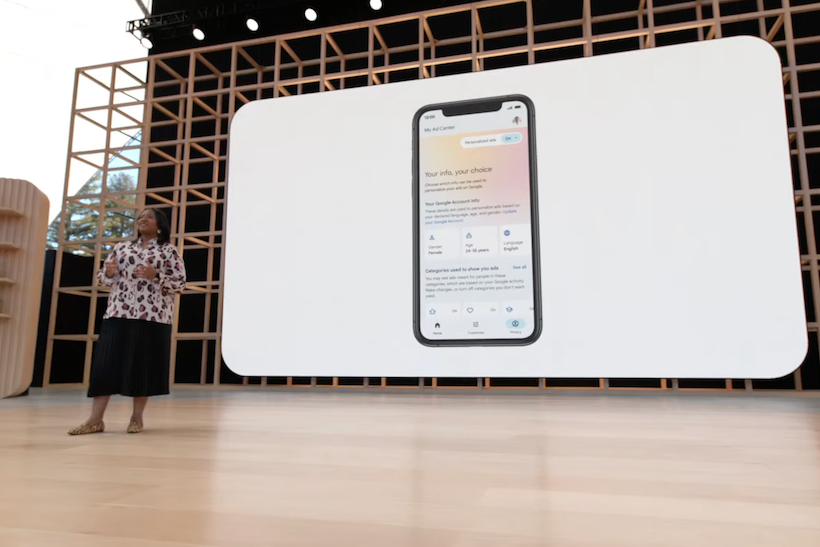Google will soon allow users to control which brands and topics they see in ads as part of a refresh of its ad control center, which the company announced Wednesday (May 11) at its annual I/O developer conference.
The new My Ad Center will be rolled out later this year, and will allow Google users to control the content of the ads they see directly or within a hub that will supersede its current Ads Settings control panel.
In a preview of the product shown to Campaign US, users can click on a three-dot menu on the left-hand side of any ad they see across Google search, Discover and YouTube to open up a menu of options. The menu will reveal information such as who paid for a given ad and what account categories Google used to target them with the specific ad — replacing Google’s former About this Ad tool. They can also report, block or like the ad.
In a new development, users will be able to choose to see more or fewer ads on a particular topic or from a specific brand.

Within the My Ad Center hub, accessible within a user’s Google account settings, users will be able to change category information that Google has collected or inferred about them, such as their house ownership or marital status. Changing information will change the category to one that is “verified by you. Users can also switch off the category for use in advertising. Google first began allowing users to directly disable data sets for ad targeting in 2018.
Users’ decisions will be collected in a tab in the hub called Customize, where they will also be able to opt out of receiving ads in “sensitive categories” such as gambling, alcohol, dating, weight loss and pregnancy and parenting. There may be more categories added to the sensitive list over time, Google’s director of product management for ads privacy and trust, David Temkin, told Campaign US.
Users will still be able to turn ad personalization off entirely. But Google sees its additional controls as a way to prove to users the merits of personalization.
“We see personalized ads as useful, just like personalized movie recommendations, commerce and news. It is a great way to discover things that might be useful or interesting to you. The fact that it is personalized makes that possible,” Temkin said in an interview. “We think this increases trust in ads and makes them more useful to people.”
Temkin said “not very many” people turn off personalization altogether, but they do care about controlling their data. “This product gives users control over the algorithm,” he said.
The tech giant has been providing users with greater transparency and control over their data and ads experience for several years in response to regulatory scrutiny and growing data literacy among the general public.
The impact on advertisers
While Temkin said Google is “not anticipating a large change with advertisers,”the new controls suggest advertisers will witness a shift in their ability to target certain users.
Users may choose to see less of certain advertisers or topics, “but I don’t know the net effect will be negative,” Temkin said.
“I think we are offering more people to engage with and say what they are actively interested in. That's a very strong signal,” he added.
Some of the changes in My Ad Center will be “advertiser positive,” Temkin said, such as a new feature that will allow users to revisit ads they recently saw.








